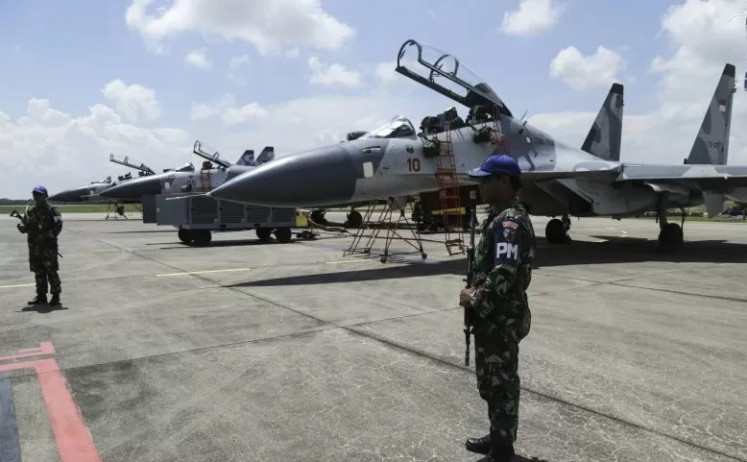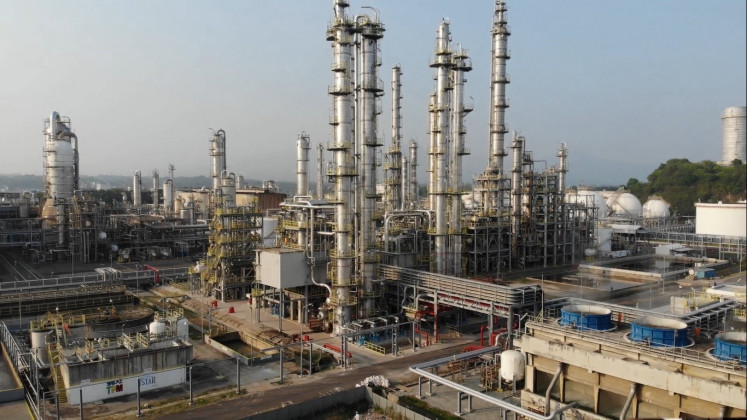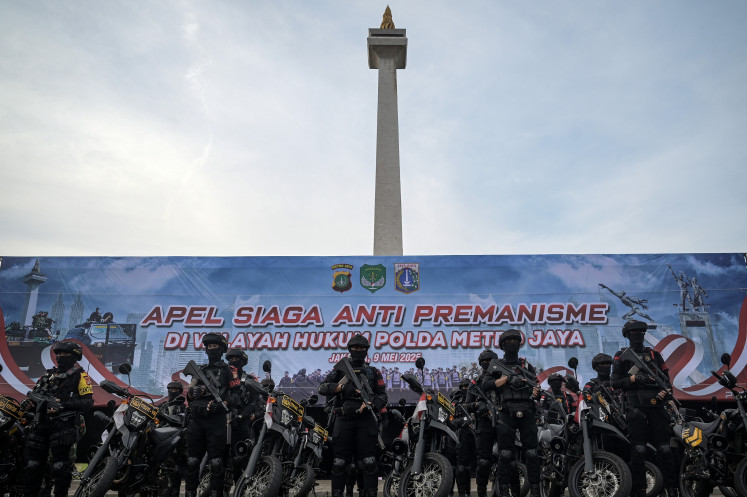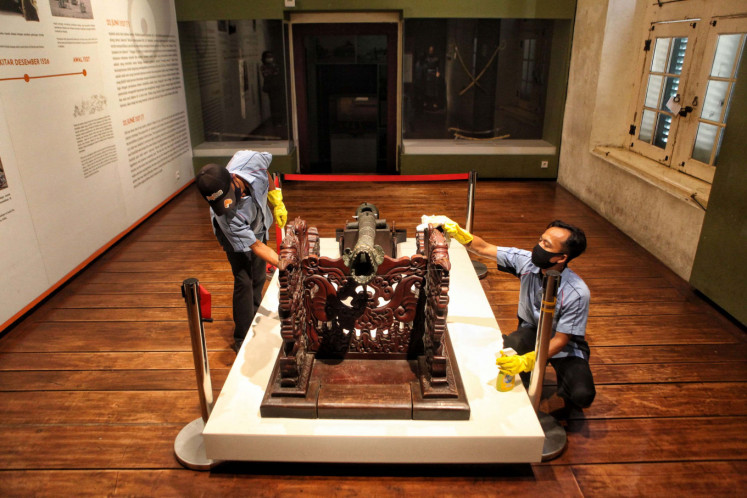Guns and butter
Building a strong and sustainable defense industry would not only protect the nation from threats but also strengthen its economy and improve people’s welfare.
Change text size
Gift Premium Articles
to Anyone
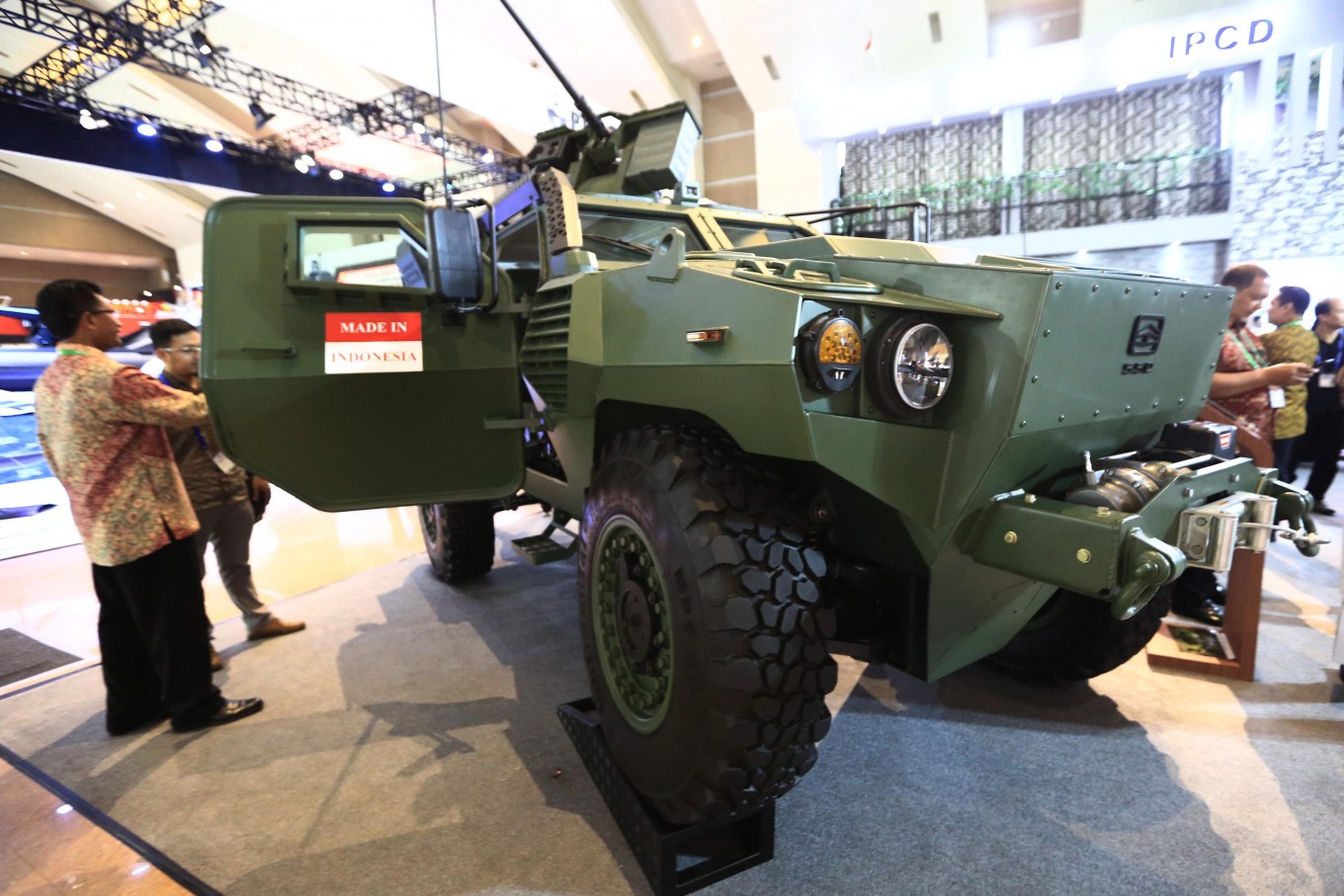 Heavy metal: Visitors look at the P2-KM armored reconnaissance vehicle, which was produced by a private Indonesian company, at the 2018 Indo Defense Expo and Forum in Jakarta on Friday. The defense forum, hosted by the Defense Ministry, lasts until Saturday and showcases Indonesian defense products to the global market. (JP/Dhoni Setiawan)
Heavy metal: Visitors look at the P2-KM armored reconnaissance vehicle, which was produced by a private Indonesian company, at the 2018 Indo Defense Expo and Forum in Jakarta on Friday. The defense forum, hosted by the Defense Ministry, lasts until Saturday and showcases Indonesian defense products to the global market. (JP/Dhoni Setiawan)
T
he biennial Indo Defense Expo and Forum is to open its doors to the public on Saturday, allowing lay people to see the latest developments made in major weapon systems (Alutsista), not only by foreign producers but more importantly by their Indonesian counterparts, both state-owned and private enterprises.
One of the stars of this year’s event is to be the public exhibition of the Harimau (Tiger), a medium tank co-developed since 2015 by state-owned weapons maker PT Pindad and its Turkish counterpart FNSS. As a medium tank, the Harimau fills a gap in the Indonesian Army’s capabilities, as it already has light and heavy tanks.
Having the know-how to construct medium tanks will, as one example, contribute to strengthening the Indonesian Military’s (TNI) efforts to modernize its Alutsista, as laid out in the Minimum Essential Force strategic plans.
Indeed, Law No. 16/2012 on the defense industry stipulates that all Alutsista be procured domestically, in particular weapon systems that are already produced at home. For weapon systems that still have to be acquired from foreign suppliers, the law mandates that a certain amount of local content be produced through various transfer-of-technology schemes.
The law also stipulates that arms production not be limited to strategic state-owned enterprises (BUMNIS), but also include privately owned companies. Local companies, both BUMNIS and private firms, have the ability to fulfill the TNI’s needs. Some companies have signed agreements that provide them with assistance from foreign partners, such as Australia, Europe, Russia, Turkey and the United States, to develop their products to become more advanced.
On the other hand, Indonesia is also seeking foreign markets for its defense platforms, systems and services and has sold strategic sealift vessels to the Philippines navy and a number of transport and specialized mission aircraft to a number of countries.
Defense exports are a source for foreign exchange reserves and also strengthen bilateral relations with importing countries. Indeed, although not yet a fully developed country, Indonesia is targeting so-called non-traditional markets, such as countries in Africa and South Asia.
The export potential of these large markets demonstrates that the country’s defense industry is certainly no white elephant. In the past, the country’s defense industry used to be pitted against economic development in a “guns versus butter” dichotomy, but with a stronger and well-managed defense industry, the country can prove that guns and butter actually complement each other.
The local manufacturing of Alutsista would not only create jobs for those directly involved in the defense industry, but also support industries that supply various sub-systems, parts and components, down to the raw materials. If the defense industry flourishes, such companies will have an expanded customer base.
Building a strong and sustainable defense industry would not only protect the nation from threats but also strengthen its economy and improve people’s welfare.






